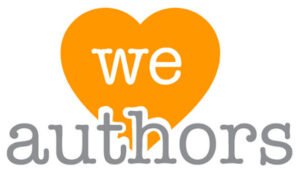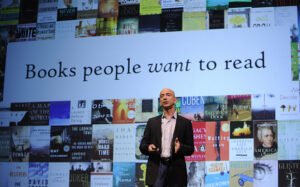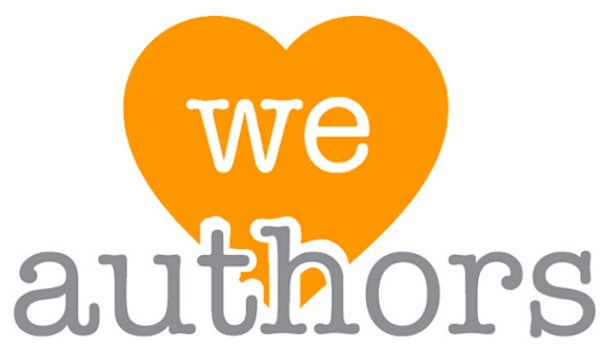Revised payment methods for Kindle Owners Lending Library and Kindle Unlimited, like other Amazon services, are author and reader friendly, argues Orna Ross
 “Now will you admit that Amazon is no friend to authors?” said my book-loving friend, who had telephoned me from Ireland for a chat. He’d heard a writer on Irish radio talking about what he called “Amazon attack on author incomes”.
“Now will you admit that Amazon is no friend to authors?” said my book-loving friend, who had telephoned me from Ireland for a chat. He’d heard a writer on Irish radio talking about what he called “Amazon attack on author incomes”.
“You know, whenever I see what the media writes and says about Amazon,” I said, “I wonder if the information I’m getting about other topics is as skewed and inaccurate.”
“But,” cried my friend, “this poor writer’s income has been totally decimated, overnight. On a whim. They are only paying writers for the number of pages read now, instead of the whole book. Aren’t you worried?”
Sigh.
I do understand that most people outside our business (and some within) are not au fait with the difference between a reader buying an ebook on Amazon vis a vis borrowing it via Kindle Owners Lending Library (KOLL), or downloading it as part of their Kindle Unlimited (KU) subscription. [Details on these differences, from a writer's perspective, here, if you’d like to know more]
But this wasn’t an honest misunderstanding. This was, once again, a wide strand of the press and reading public refusing to let facts inform the latest chapter in their “Amazon Is A Scary Monster” story.
My friend is a reader who resents ebooks and his determination to diss Amazon over this latest move was echoed in media, old and new, across the world — UK daily newspapers right-wing ( The Telegraph) and left The Guardian, culture press USA (The Atlantic), business press (Canada Business), tech reporting (Gismodo Australia), not to mention among authors online. In all of these articles, and hundreds more, errors, fallacies, and miscalculations flew, laced with howls of protest from self-interested authors.
They confused sales with borrows, did calculations that overlooked how KENP (Kindle Edition Normalized Page) counts are higher than print page counts, overlooked the leap in the global fund from $3 million to $11 million; and generally assumed bad motives and outcomes.
It was left to author blogs (see Hugh Howey and Catherine Ryan Howard ) and the ever-thoughtful publishing commentator, Porter Anderson, to keep the record accurate.
So Why All The Negativity?
You could put it down to the negativity bias to which, psychologists tell us, we are all prone — do you pay more attention to a good review or bad? — but it’s more than that. What we have here is fear.
Amazon is powerful and has flexed that power in negotiations with publishers. It is at the forefront of technological change that has thrown up big challenges for independent publishers and wholesalers, booksellers and authors. And it keeps on ringing the commercial changes in an industry that is conservative and that, quite rightly, values its cultural role as well as its commercial well-being.
So Is Pay Per Read Good or Bad for Authors?
As with most things authorly, it depends.
- If you are an author who distributes all your books through multiple retailers and haven’t given any exclusively to Amazon, it won’t make any difference: business as usual for you.
- If you have one or more books in KDP Select and you:
- write long compelling books, you probably stand to make more money.
- write short compelling books, you possibly stand to make less.
Probably and possibly, because we won’t know the outcome for sure until the first payouts begin in a few weeks. What we do know is that if you are in KDP Select and you:
- write books short or long that do not engage readers, your days (pages) are now numbered.
The move, while restricted to the lending library and subscription service, is the first time anyone in the book business has given readers — more accurately, the act of reading — a say in what gets financially favored. This is a fascinating move and one that we welcome at ALLi.
Who in the books ecosystem is better placed to decide which writing gets rewarded than readers?
But What About Literature?
The Telegraph‘s article began, as many of the articles decrying the move to pay-per-read did, with James Joyce, the ultimate bought-but-little-read author: “How much snappier would Ulysses have been had James Joyce been on a pay-per-page deal?” it asked.
Answer: Not one bit.
Joyce didn’t write for money, or to please readers, or but “to forge in the smithy of [his] soul the uncreated conscience” of his people. His book was brought to the attention of the reading public by a committed publisher.
Many publishers take great delight in publishing and promoting books of minority interest but cultural importance, like research-driven science, history, poetry, economics or literary fiction.
Commentators on the KU/KOLL move are assuming only popular fiction and non-fiction, packed with hooks and twists and other people pleasers will be bought and read. Yes, the market will favor these works, the market always has, but for every hundred readers who likes to read those, there are a few who prefer detailed description, thought provoking theory, complex characters or finely wrought prose. Such books too will be bought and read.
 Traditionally, when we were limited by bookshelf space and territory, they couldn't be bought in sufficient numbers to give an author a living. The question is: are there enough readers on a global scale to keep a writer like that in business now?
Traditionally, when we were limited by bookshelf space and territory, they couldn't be bought in sufficient numbers to give an author a living. The question is: are there enough readers on a global scale to keep a writer like that in business now?
Another question is which books die a death under a pay-per-read system? Those bought because they were written by celebrities jump to mind. Also, those that sell a premise they don't deliver (You know, all those Ten Instant Steps to Total Happiness Forever titles).
And indeed, Ulysses.
How many other books fall into the bought-but-never-read category?
Is Amazon Good For Authors?
So back to the original question.
ALLi’s tried and tested answer is yes. We run a watchdog desk and publish an annual guide in which we compare and vet self-publishing services under a wide variety of headings, including service, pricing, contract terms and conditions, ease of use etc. Amazon consistently figures at the top, or in the top three, under every measure.
Full disclosure: Amazon provides grants and sponsorship to many literary charities and nonprofits including ALLi. Our services assessment is, however, completely independent of this grant. Amazon and all sponsors are subject to the same scrutiny and process as everyone else and we do not accept as a Sponsorship Partner, or Partner Member, any company that we know breaks our Partner Member Code.
And ALLi’s standard advice to authors in general (there are always exceptions) is to avoid exclusivity with any one retailer and to make your books available in as many formats as possible on as many platforms as possible.
All of our team, and a majority of our members, favor a vibrant author-publishing market, with a wide variety of good services.
Right now, Amazon is the largest, the most innovative, and one of the most author-friendly services. Maybe this will change in time.
Until it does, if we measure author-love in money, attention, service, respect, or fair dealing, any impartial observer summing up the evidence has to conclude that yes, Amazon does, as much as any, and more than most, love authors.





[…] Does Amazon Love Authors? – by Orna Ross […]
[…] And then, of course, KU. Discontent continued to flow towards Amazon from summer onwards over the announcement that indies whose books are available through Amazon’s lending services Kindle Unlimited (KU) and Kindle Owners Lending Library (KOLL) would now be paid royalties for how much of their books are read, rather than at point of purchase. Orna Ross discussed authors’ concerns in a timely post. […]
[…] or so, with two blog posts about them ( on whether the company really “loves authors” Here and on all the way to publish on […]
1 Amazon is not powerful company. they do not know how making money.
2 Amazon is it’s no one’s friend.
3 Amazon is not a good place for short stories in novelette and novella. The best Place Is to be in Smashwords Store.
Amazon loves its business. If it aligns with an authors interest, that is great, if not, then Amazon is not going to care.
The biggest problem I have with Amazon is the artificially low prices it forces authors to adopt–and it does force it by incentivizing royalties based on price. It is trying to decouple price from cost (price is not a random decision), which is great for readers and Amazon, not so great for the folks that actually make stuff. The subscription thing does not bother me as I don’t make books that work on subscription models. But when Amazon is simply pursuing a race to the bottom where the ultimate goal is to have products as cheap as possible, it is not a viable model for creative people.
I agree that Amazon has allowed independent authors new avenues for income, whether that is with ebooks or pbooks. That is great, but it did it for itself, not from the goodness of its heart. It is a business.
I’d respectfully suggest that it’s just as pointless to say “Amazon loves authors” as it is to say “Amazon hates authors. Why do people try and see big businesses through an emotional lens?
If Amazon loves anything, it loves money.
It’s a position that may align with the interests of readers, or authors, from time to time. And I’m not blaming Amazon – it’s their job to be profitable – but if those interests don’t align, they will choose money.
I agree with much of this, and maybe I’m picking on semantics here, but Amazon does not love authors or readers. Amazon loves money. Making money is their undisguised agenda, and that’s fine. They’re a business, not a charity for artists. They facilitate authors to the extent that it serves their purpose, and often, that benefits authors, but I think they’ve proven again and again that our usefulness to them — as a commodity, as a loss leader, as cannon fodder in publisher disputes — is key to their “love” for us. If we want to change any given thing about their policies/practices, we have to show them how they would financially benefit from that change. Meanwhile, it’s up to each of us to conduct our own biz with a realistic eye on what’s most beneficial for our own bottom line, recognizing that the wellbeing of any individual author is a desirable side effect but not a goal for Amazon.
hey Joni! The “love” bit was a little tongue in cheek, based on the Amazon T-shirt logo. You are absolutely right, of course, but their dedication to books as opposed to, say, music is interesting. And makes them more interested in us. I do believe that Jeff Bezos loves books: http://www.ornaross.com/2015/07/jeff-bezos-amazon-founder-ceo-on-his-love-of-books/
A great article, thanks for posting this, which I’ll tweet. I’ve never understood the perception that Amazon is for or against authors – to paraphrase what Jane said above, Amazon is for its customers plain and simple. I’ve always just viewed Amazon as a distribution tool to help reach readers, not as a benevolent friend or an enemy. Whenever I hear anyone bemoan the latest antic, I always wonder what we as authors can be doing to become less Amazon reliant so that changes don’t hurt our pockets. Their domination can’t be denied; more than 85% of my ebook sales come from Amazon and more than 70% from overall sales. But when books account for a small fraction of what they sell, it seems ridiculous to me to concentrate on just Amazon promotion to gain readers.
Everything you say makes perfect sense Lisa. What we see in ALL is that new authors often stay Amazon only for the first book or two. As they get more confidence they spread out into other platforms.
Excellent article and I agree on all points. I’ve had to correct several people on different loops on what ‘pay per page’ actually means. The only drawback – which you don’t mention – is that we no longer know how many copies of a book we’ve loaned. 1000 pages could be 5 readers finishing the book or 100 only reading 10 pages. Also as page counts continue until a book is finished or returned there could be a trickle of payments over several weeks – or indeed months.
I still buy books that are not in the system if they are priced competitively so I can’t see why anyone not in Select is losing sales.
Also I believe any device can now download Kindle books as there is now a free app – therefore you don’t have to be on any other platforms for other readers to buy your books – however, I might have misunderstood how it works.
As most of my best-selling books are around 50K I will probably get a little less under this system but I still think it’s author friendly and so is Amazon.
thanks Fenella and that’s a good point you make about authors still wanting to know how many copies of the book have been loaned. It will be interesting to see if this comes through in statements when the first payouts are made in a few weeks time
Above all, Amazon loves readers. Its decisions are geared toward giving readers what they want, and if a new channel for supplying books to readers emerges, it’s going to explore it. Amazon takes what other suppliers do, and tries to do it better. Their logic is: make the reader happy and they will return to buy more, and more than just books. That’s been Amazon’s drive from the beginning, and it works.
Fortunately, what’s good for the reader has been good for the acceleration of self-publishing as well. But not every change Amazon makes in its customer-centric systems is going to be good for all authors, because Amazon isn’t focused on the author, or the publisher. Amazon loves us, yes, because a thriving and diverse literary smorgasbord is what readers want. But it doesn’t exist for us, which is what many authors don’t seem to understand.
hi Jane, great to see you here. Yes, the reader is king for Amazon but I differ a little here and think writers sometimes underestimate we also are customers, with the company taking a percentage of every sale they make of our “product and now these new initiatives around borrowing and subscription. Customers who are also suppliers, so it’s a bit more complicated, but they have our price point worked out in advance of any decision they make too.
Insightful and timely as ever, Orna.
The problem with most of the literary and publishing press, I feel, is that it is still largely informed by its long-standing relationships with traditional publishing who, perhaps rather understandably since many are struggling to compete, regard Amazon as the enemy.
With a few exceptions, Porter being a great example, the majority of views and opinions expressed in the press therefore echo those of the embittered old guard.
It’s therefore very important that ALLi and other such organisations of repute, continue to put the record straight, as you have done here.
Having said this, I don’t think we should trust Amazon to always ‘love’, or be friendly towards, authors. I think they will always go where the money is, and act in ways designed to beat their competition. At the moment, this works pretty well for large numbers of us, but this may not always be the case.
Hi Simon, thanks for dropping by. I think another problem in the traditional press is that it is now only paying political and economic staff well, the journalist writing about publishing is poorly paid and writing on a short deadline, often reproducing press releases and certainly not spending the time and thought needed to fully understand the implications of the major changes happening in our industry. Of course Amazon is a business — and ALLi will always be responding to what we see before us, as you say, anything may change and businesses will, quite rightly from their perspective, make changes in their own favour, not anyone else’s. that’s why we encourage our members to publish on every platform.
A great article, Orna. There is however one point on which I must disagree and that is ‘business as usual’ for authors not in KDP Select. Whilst this latest change may not affect the situation, ‘business as usual’, as far as I am concerned, ended in last September, with my income from ebooks taking a nose-dive of 80 per cent. It has shown no signs of recovery. This has been the impact for many authors who have decided against exclusivity, but whose customers were mainly Amazon customers (in my case, 95% of my income came from Amazon customers. This percentage is still a majority, but less). Once those Amazon customers decided to subscribe to a service with a monthly fee, limitation on reading time is such that they won’t look outside the selection available for their next read. I know of many genre authors who have benefited greatly by the introduction of Kindle Unlimited. Having just received a shortlist of 50 books for another indie ebook award, nominated by readers, there is a clear dominance of romantic and erotic fiction titles. Interestingly there was not a single nomination of contemporary/literary fiction, which is where my own writing sits. With only a very small percentage of my income coming from other platforms, the question I find myself constantly asking is ‘Would I be better off in KDP Select?’ so that I can have a piece of the subscription service pie, and the answer is usually yes. Three things prevent me from taking this step. (1) I prefer to give my customers choice about where to buy from. The Amazon boycott last December (fuelled by the press, I admit) was a clear indication that some people are wary of large organisations. (2) It takes time to build up a reputation on other platforms and I would risk losing considerable ground if I wished to republish elsewhere should market conditions change. (3) I don’t like the feeling that I am being blackmailed into a decision regarding exclusivity. Ultimately, I feel, my finances will force the issue, but for now I am hanging tight.
Hi Jane, thanks so much for your thoughtful comment and I take your point — if every reader signs up for KU, there’s nobody left to buy books. I’m aware that other members and authors feel that being outside KDP select increasingly affects sales — it’s difficult to get beyond anecdotal evidence here, and I’d love to hear more specifics. Is it that you feel your potential readers signed in droves for KU, on its the launch on amazon.co.uk? Is that where are you made most sales prior to September? Literary fiction is always such a hard sell — I remember reading that John Banville sold just 700+ copies of The Sea, before it won the Booker prize.